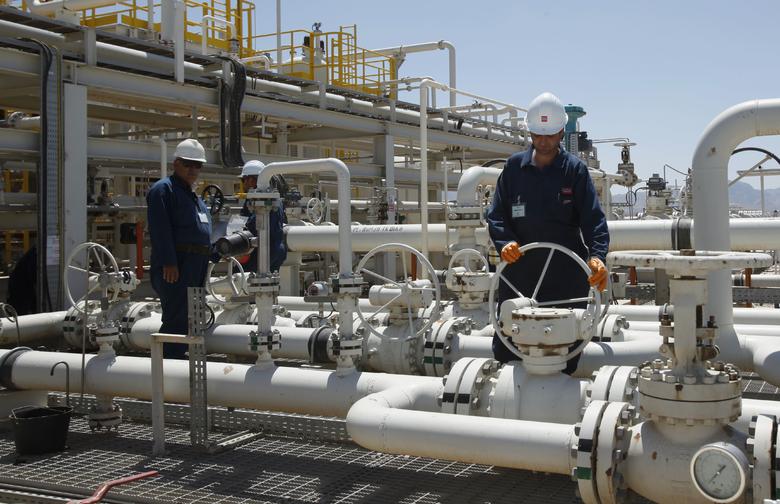
IRAQ SUPPORTS PRICES

According to WSJ, Iraq would support a decision by members of the Organization of the Petroleum Exporting Countries to limit oil output to prop up petroleum prices, Prime Minister Haider al-Abadi said Tuesday.
"We support freezing oil production by OPEC due to the sharp decline of oil prices," Mr. Abadi said at a news conference, saying it would help government-salaried oil-industry workers.
The Iraqi premier's announcement puts the weight of OPEC's second-largest petroleum producing country behind a bid to cap oil output expected to be discussed during an energy conference in Algeria from Sept. 26 to Sept. 28. Until now, Iraq was seen as a potential impediment to a deal because its production has soared and it desperately needs oil revenue to fight a war against Islamic State.
OPEC, a 14-nation producer group that controls over a third of the world's crude-oil production, has been unable to agree on production measures during the two years with oil prices in a free fall. Saudi Arabia, the cartel's most influential member, has abandoned its traditional role of propping up the market with production cuts, reckoning that a wave of American crude output has made that option less effective.
Instead, the group's members have pumped at full tilt and competed for their slice of the export market. In turn, oil prices have stayed low, descending to $27 a barrel this year -- a 12-year low -- from highs of $115 a barrel in 2014.
Iraq produces over 4 million barrels a day and wants to pump even more. The country's officials have sent contradictory signals about joining a production freeze, with Mr. Abadi dismissing the idea just last week and the new oil minister Jabar Ali al-Luaibi pledging to work "day and night on increasing the national production of oil and gas."
Any deal negotiated in Algiers next month also would need the support of Saudi Arabia and Iran, long-time rivals with competing interests in the Middle East and in the oil market. An initiative to freeze production died in April during talks in Qatar when Saudi Arabia backed out over Iran's refusal to join.
A host of analysts have said those two countries' opposing interests are likely to scuttle any deal, which would require a unanimous vote of OPEC members.
An OPEC official said Tuesday that Persian Gulf countries, including Saudi Arabia, believe the Algiers talks will be a good time to review the oil market and build trust among members but "a concrete action is likely to take more time."
The world's supply of crude oil and demand for it is already beginning to come back into balance after over two years of a glut, the official said. According to the International Energy Agency, demand will actually outstrip production in the third quarter of 2016, though there are still record supplies in storage to sell.
"It is not really that necessary to act now," the official said.
Another OPEC official said the talks next month shouldn't be seen as the last opportunity for OPEC to take action.
"These things can take several meetings to be implemented," said the official who hails from a Persian Gulf Arab country.
-----
Earlier:





